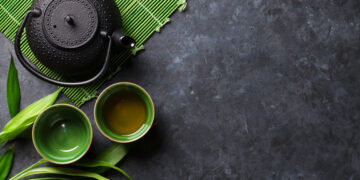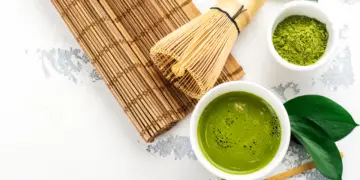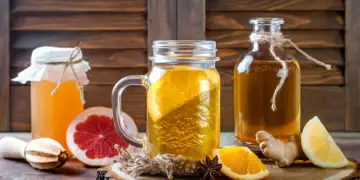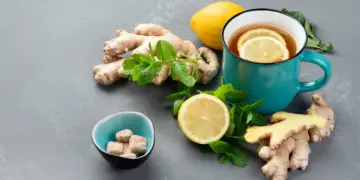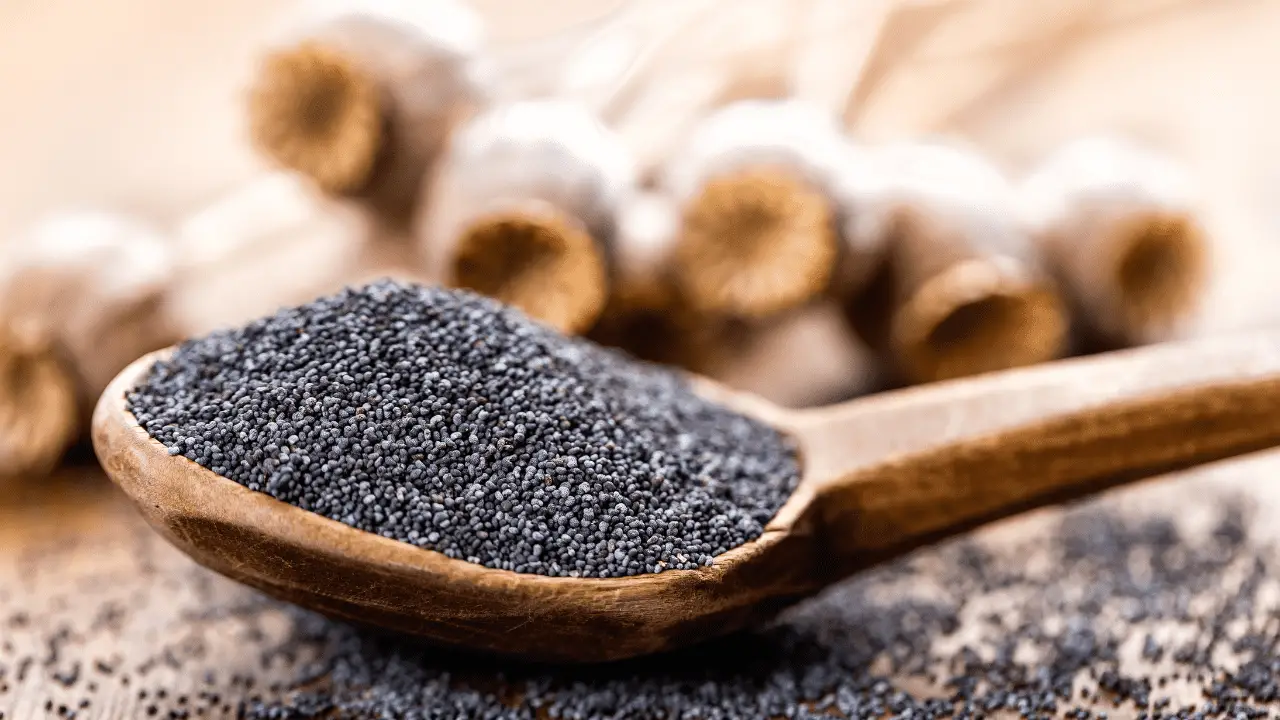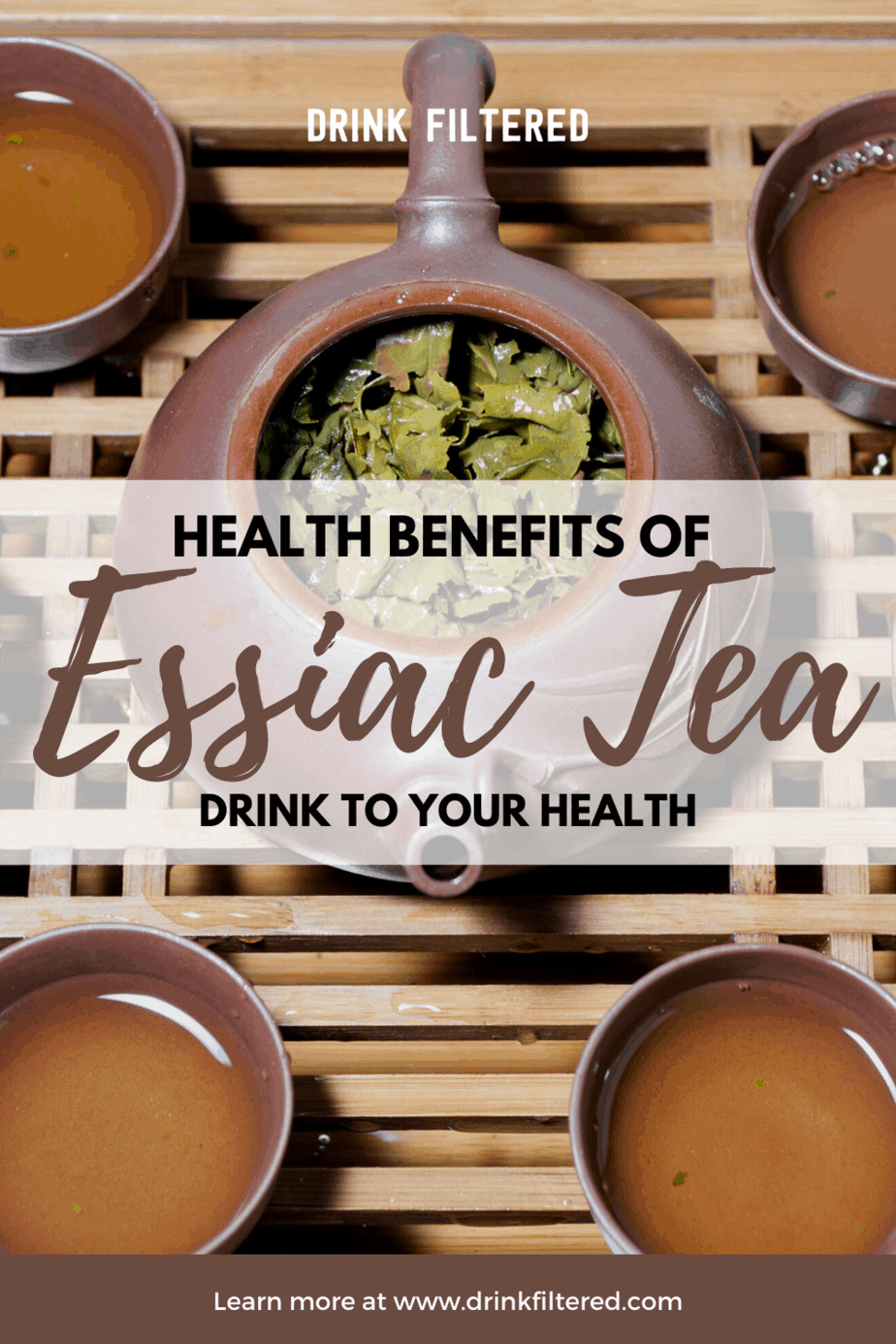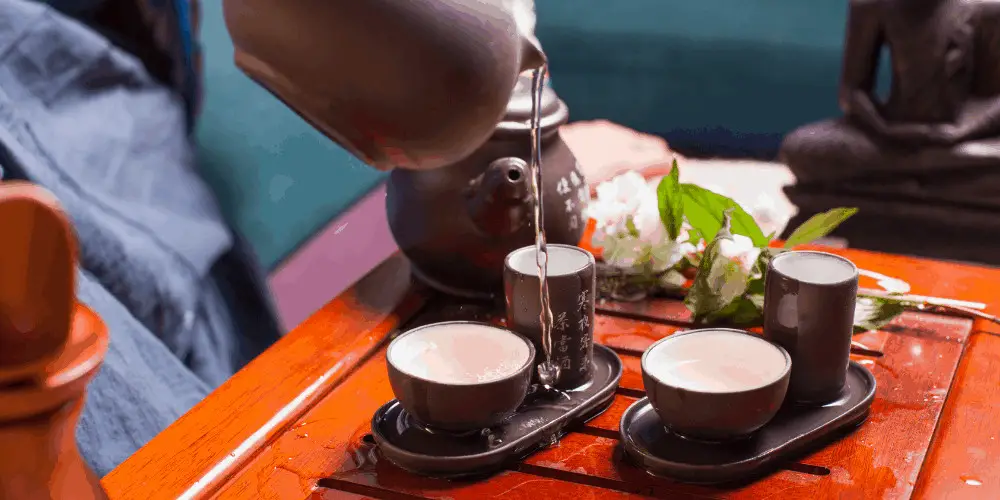
Brewing tea has been a longstanding art form and a recognized form of healing in all parts of the world. These days, the benefits of drinking tea are even more widely understood. In particular, essiac tea is thought to have enormous health benefits, and every day people discover this delicious remedy for their ailments.
- What is Essiac Tea?
- Essiac Tea Ingredients
- What Does Essiac Tea Taste Like?
- The Benefits of Essiac Tea
- What Tea is Best for Fighting Cancer? Is it Essiac Tea?
- Does Essiac Tea Kill Candida?
- Essiac Tea Side Effects
- Essiac Tea Dosage
- Essiac Tea Recipe
- How Do You Make Essiac Tea?
- What is the Best Essiac Tea?
- Conclusion
What is Essiac Tea?
Essiac tea is a herbal tea that is touted for its ability to kill cancer cells. It has become trendy among enthusiasts of natural health practices. Essiac tea derives its name from Renee Caisse (Essiac is Caisse spelled in reverse), a Canadian nurse who discovered a natural healing formula that she used to heal herself and others.
The tea is usually sold in powder form. However, bags and capsules are also sold. It is usually recommended that you drink 1-12 fluid ounces each day in order to see results, ideally on an empty stomach.
Essiac Tea Ingredients
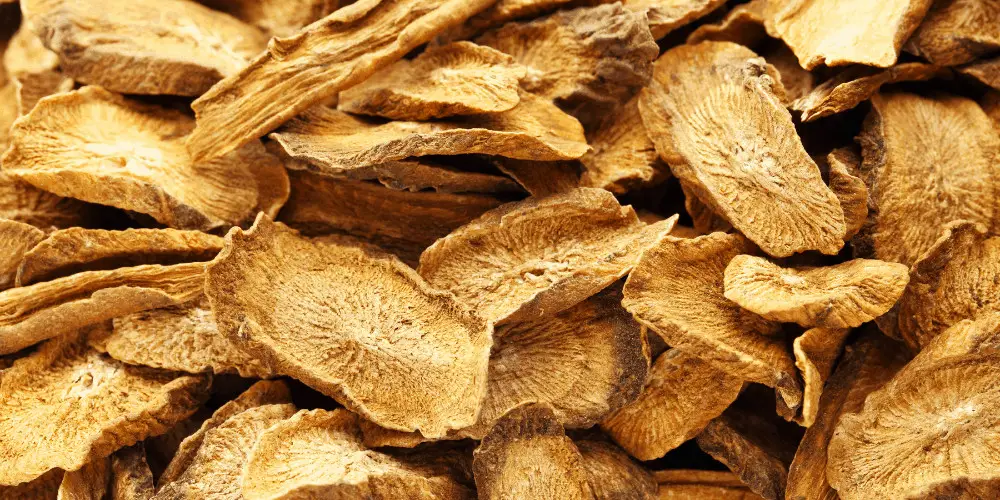
The ingredients in Essiac tea is believed to give the formulation its power.
Essiac tea consists of four ingredients: burdock root, the inner bark of the slippery elm, Indian rhubarb root, and sheep sorrel. All four of these herbal ingredients are said to have healing properties.
What Does Essiac Tea Taste Like?

Essiac tea is known for its relatively robust and distinctive taste. While some people can adapt to the taste after a few days or weeks, others find the taste makes the tea difficult to stomach. The tea is distinctly grassy and earthy in taste. For this reason, many choose to sweeten the tea or mask the flavor with the addition of other ingredients like:
- Orange Juice
- Apple juice
- Tomato Juice
- Lemon Juice
- Lime Juice
- Another, sweeter herbal tea
Many find that essiac tea tastes better when consumed warm or hot.
The Benefits of Essiac Tea
The health benefits of Essiac tea are still being studied, and a number of clinical trials are underway. Given the power of the individual ingredients, enthusiasts of the drink are hopeful for positive results.
- Anti-Inflammatory: Essiac tea is thought to have important anti-inflammatory properties. Since so many of the ills that befall us are accompanied by inflammation, such tea may be an effective treatment for a wide variety of conditions.
- Detox: Every day, we are under assault from pesticides in the environment, impurities in our food and water, and air pollution inside our own homes. The detoxifying properties of Essiac tea may be beneficial in setting us up for our body to perform its natural detoxification process
- Gastrointestinal Health: Essiac tea is often boasted as an agent to improve gastrointestinal health, however, the scientific evidence is lacking.
What Tea is Best for Fighting Cancer? Is it Essiac Tea?
There are many claims that the ingredients in Essiac tea are natural cancer fighters. While clinical trials show mixed results, many hope that Essiac tea could be the cure for a number of maladies, both modern and ancient. Most people interested in drinking Essiac tea are interested in its advertised cancer-fighting properties. Is there truth to these claims?
One study showed that Essiac tea prevented damage to cells and DNA, potentially offering protection against cancer cells.
Despite limited definitive research, some individual cancer patients are convinced that tea is responsible for curing their cancer. As with many complementary treatments, countless individual stories are online boasting personal stories of successes and failures. In one case, a man with prostate cancer went into remission and attributed his cure to Essiac.
It is important to note that many studies have conflicted with the positive evidence supporting the tea, which suggests that it is not as effective when to killing on preventing cancer as it is believed. For instance, in 17 animal studies found essiac tea to have absolutely no effect on cancer cells. Several other similar animal studies have indicated that Essiac tea may not only have any effect on cancer cells but can encourage the growth of breast cancer cells.
Essiac tea has not been approved by the FDA as a treatment for cancer or any medical conditions. Many organizations discourage use of Essiac tea for the treatment of cancer and caution against using it while receiving chemotherapy.
Does Essiac Tea Kill Candida?
Candida is a condition that results from yeast developing into a fungus. There is very little information about Essiac‘s effect on candida. However, one Essiac company claims that the rhubarb in essiac helps prevent bacterial growth, leading to candida.
Essiac Tea Side Effects

Unfortunately, drinking essiac tea may result in some unpleasant side effects. These may include:
- Nausea
- Vomiting
- Headaches
- Increased urination and bowel movements
- Swollen glands
- Fever
It is also strongly recommended that women who are either pregnant or breastfeeding avoid drinking this tea.
Essiac Tea Dosage
Rene Caisse, the originator of Essiac tea, recommended dosage of 1 fluid ounce daily for the treatment of serious medical conditions. That recommended dosage was to be continued for up to two years with a resting period of a week off every four weeks.
This one-week resting period was thought to stimulate the body and increase the tea’s efficacy. Modern drinkers of Essiac tea largely follow the original recommendations while making accommodations for their health and the nature of their illnesses.
Remember, there is little evidence to support any specific dosage recommendations for Essiac tea.
Essiac Tea Recipe
There are many recipes for Essiac tea, and many practitioners have created their own specialized formulations. Even so, the classic recipe for Essiac tea includes 6-1/2 cups of cut burdock root, 1 pound of powdered sheep sorrel, 4 ounces of powdered bark from the slippery elm tree, and 1 ounce of powdered root from the Indian rhubarb plant.
These four essential ingredients are then mixed thoroughly and distilled into an aromatic and surprisingly good-tasting tea.
How Do You Make Essiac Tea?
When you purchase Essiac tea, be sure to follow the instructions given by the manufacturer carefully. Usually, you will need:
- Glass or steel pot
- Strainer
- Funnel
- Jars
Avoid using aluminum tools, which are thought to react poorly with the tea.
A 2-ounce package of essiac should make one gallon of tea. The tea lasts for roughly two weeks in the fridge, so bear this in mind when you make a batch—avoid making too much, as it will go bad.
- Pour a gallon of water into your pot and boil it on the stove.
- Reduce the heat to a simmer and stir in 2 ounces of essiac tea. Leave the herbs in the water for 10 minutes.
- Allow the tea to brew for 8-12 hours. Keep a lid on the pot and store it in a warm place.
- After letting the tea brew, reheat the mixture, careful not to re-boil. This will help to mellow the flavor of the tea.
- Using a strainer, pour the tea into a series of clean jars.
- Refrigerate the jars for up to two weeks. If the tea has a sour taste or a white mold appears on the surface, do not consume the tea.
What is the Best Essiac Tea?
Here are a few of the best brands of Essiac tea.
Starwest Botanicals Organic Essiac tea – This is an organic herbal blend made in the US. It is certified by QAI under the USDA National Organic Program Guidelines. This blend is made with burdock root, organic sheep sorrel, organic rhubarb root, and organic slippery elm bark. The tea will arrive in a well-sealed, foil bag.
A Nurse’s Tea – This brand uses the original Rene Caisse recipe and formula, including real sheep sorrel roots And high-quality American herbs. The herbs are hand blended to ensure the release of nutrients. This company also focuses on producing eco-friendly essiac teas, using glass bottles and recycled materials.
Essiac Powder Canada – This is the official essiac supplier in Canada. This company sources all of its herbs in Canada, and the product is sold in powder form.
Conclusion
There are many benefits to consuming tea. It helps with your overall hydration, and some herbal mixtures are thought to have healing properties. Essiac tea is no exception. While the evidence is still conflicting, it is relatively harmless to consume for most healthy adults. Speak with your medical team if you currently have or have had cancer before including Essiac in your daily routine as it may be contraindicated.


